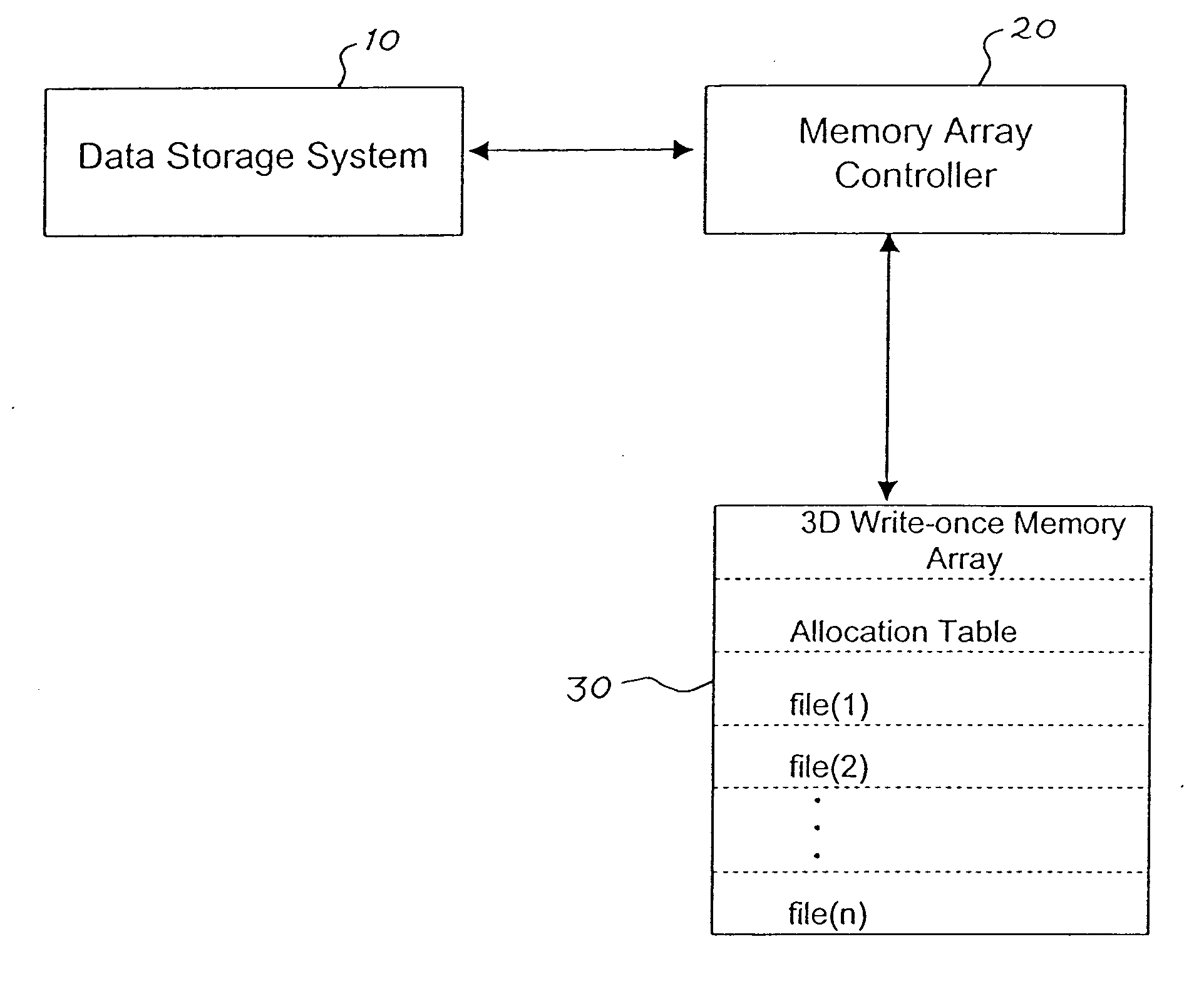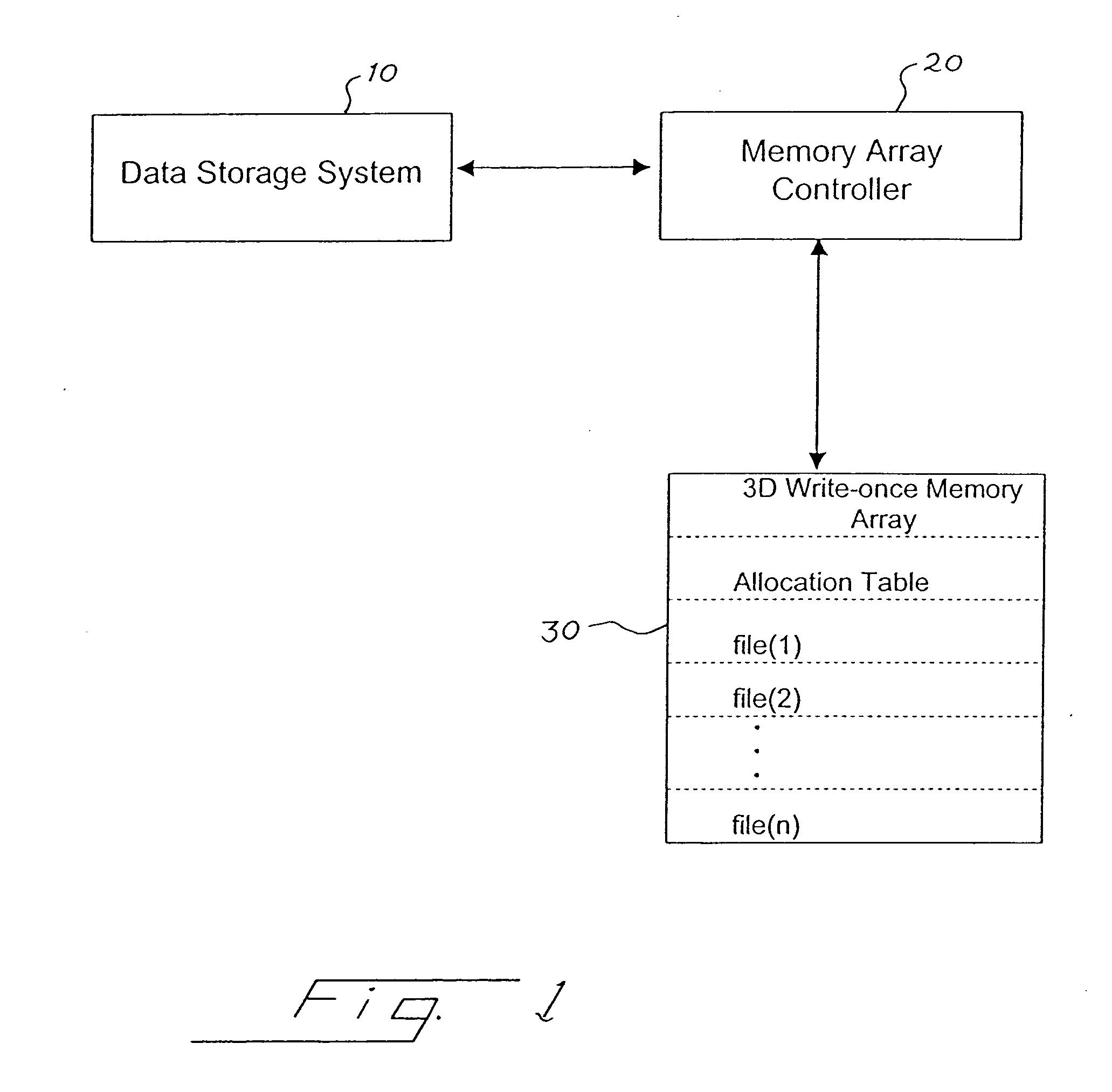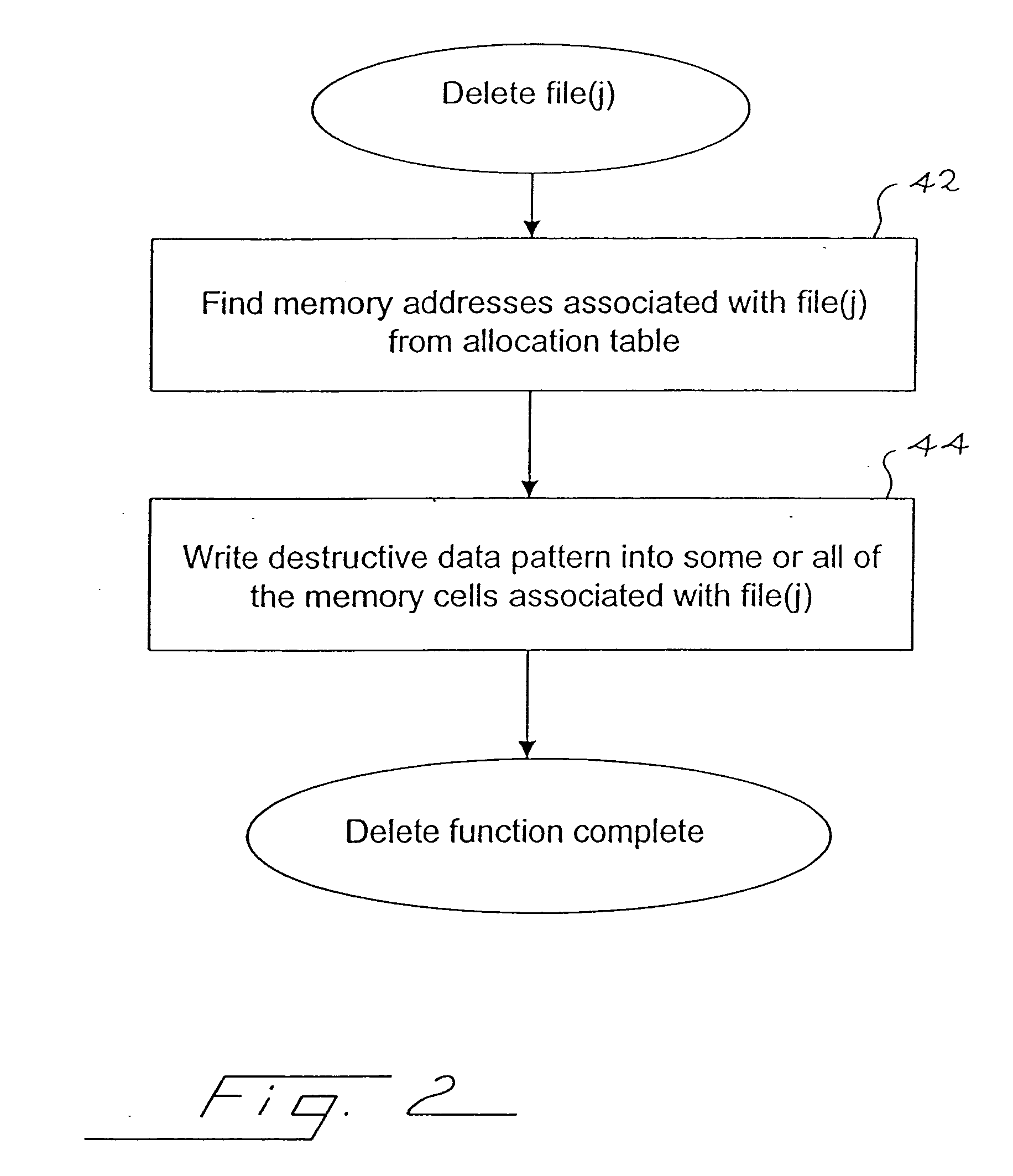Method for deleting stored digital data from write-once memory device
a write-once memory and digital data technology, applied in the field of write-once memory, can solve the problem that digital files cannot be erased with write-once memories
- Summary
- Abstract
- Description
- Claims
- Application Information
AI Technical Summary
Benefits of technology
Problems solved by technology
Method used
Image
Examples
Embodiment Construction
[0012] Turning now to the drawings, FIG. 1 show a data storage system 10 coupled with a memory device comprising a memory array controller 20 and a 3-D write-once memory array 30.
[0013] The data storage system 10 can take any suitable form, and may for example be implemented as a digital camera, a digital audio player, a personal digital assistant, a game player, a cellular telephone, an electronic book, or a general purpose programmable computer. The memory array controller 20 and the 3-D write-once memory array 30 can be implemented as any suitable memory device. See for example the 3-D write-once memory devices shown in Johnson U.S. Pat. No. 6,034,882, Knall U.S. patent application Ser. No. 09 / 560,626, and Johnson U.S. patent application Ser. No. 09 / 638,428, all three assigned to the assignee of the present invention and hereby incorporated by reference. Further details regarding alternative structures for the memory device are presented in U.S. patent applications Ser. No. 09 / 63...
PUM
 Login to View More
Login to View More Abstract
Description
Claims
Application Information
 Login to View More
Login to View More - R&D
- Intellectual Property
- Life Sciences
- Materials
- Tech Scout
- Unparalleled Data Quality
- Higher Quality Content
- 60% Fewer Hallucinations
Browse by: Latest US Patents, China's latest patents, Technical Efficacy Thesaurus, Application Domain, Technology Topic, Popular Technical Reports.
© 2025 PatSnap. All rights reserved.Legal|Privacy policy|Modern Slavery Act Transparency Statement|Sitemap|About US| Contact US: help@patsnap.com



